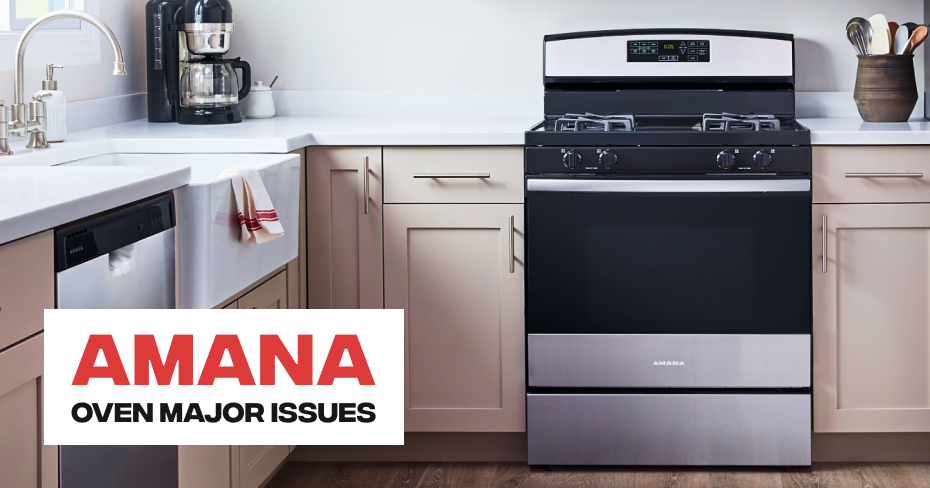
Amana Oven Strange Noises
Have you ever heard an odd noise from your oven while cooking? Did it startle you or make you wonder what was going on? Don’t be alarmed – most of the time, these noises are nothing to worry about. We’ll discuss why your oven makes a loud noise and how to fix it if the sound turns out to be a sign of a bigger problem.
Reason #1: Conventional fan impeller
One of the most common causes of noise is a worn-off conventional fan. The fan is usually located in the back of the unit. It is covered with a special metal plate and creates a proper airflow stream, and works as a protection layer for the fan impeller.
The fan impeller of the conventional fan is made out of metal and covered with rust protection paint. Unfortunately, sometimes the fan impeller starts to rust over time. The metal oxidises and becomes uneven; therefore, when the fan runs at high speed, it loses balance and causes noise.
If you suspect that this part of your oven is faulty, be careful when removing the covers to inspect it more closely, as some parts can be extremely hot. Then determine whether the impeller is loose or simply blocked by grease and crumbs. Carefully clean the blades or reattach them if they have become loose, and test the oven to make sure the noise has gone away.
Reason #2: Conventional fan assembly
The fan motor is located behind the oven chamber in the back of the unit. In order to access it, the noisy oven needs to be moved out, and the panel in the back has to be removed. Over time the motor goes through high temperatures, and eventually, the lubrication of the bearing wears off and becomes uneven. This will cause the fan to become very noisy, and in some cases, the motor will fail and not start up again. You may try to lubricate the axil with grease resistant to high temperatures. Still, it is suggested to replace it immediately.
Reason #3: Oven hinges
When your oven is making a weird squeaking noise, you should check the hinges. The hinges are exposed to high temperatures, as are most other oven components. The lubricant inside of springs and moving parts of a hinge dries out and becomes inefficient.
In order to prevent further damage, it’s important to oil or lubricate the hinges regularly. Doing this can help reduce the friction between their parts, ensuring that they operate smoothly and quietly when you open and close your oven door. To keep your oven running optimally, make sure you inspect its hinges every few months.
Reason #4: Cooling mainboard fan
Some models have a design where the second fan is mainly responsible for cooling down the mainboard circuit above the heating chamber. Due to the position of the mainboard, it gets very hot, and the mainboard, without proper cooling, will go out of order very quickly. The cooling fan maintains the appropriate temperature and works every time the oven is on.
The first step in checking your fan is locating it on your oven’s back panel. You should see some small vents you can access with a screwdriver or other tool. Once located, you’ll want to unscrew the screws and remove any dust or debris that might have built up over time.
Reason #5: Problem with the lock assembly
The lock assembly controls whether or not the door can be opened and closed. It includes a latch, striker plate, and locking mechanism that needs to be inspected if your electric oven makes a clicking noise.
Start by examining the latch and striker plate for any signs of wear or damage; these parts should be in good condition with no visible signs of rust or corrosion. If they appear worn out, it’s best to replace them as part of your repair process.
Schedule Appointment